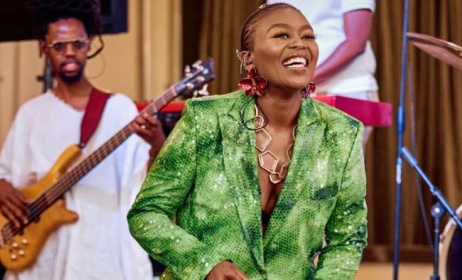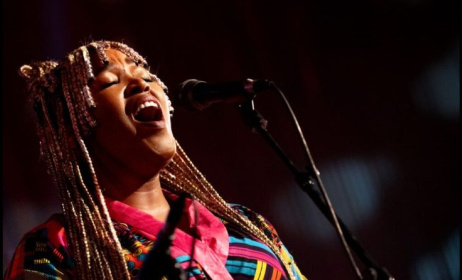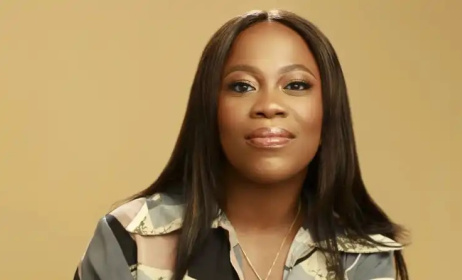Tsholofelo Mapisa on how to be an independent musician with commercial appeal
Tsholofelo Mapisa is the type of artist who likes to get her hands dirty. Everything she does must be perfect, especially her music. During the recording of her debut album, she flew some Durban-based artists to Joburg just to get a trusted opinion on her work.
 South African singer-songwriter Tsholofelo Mapisa.
South African singer-songwriter Tsholofelo Mapisa.
She’s a different breed; highly ambitious and talented with a clear destination in her mind.
When she was born, her parents wanted to make a statement amid the tribal tensions in the '90s by giving her the Sotho name Tsholofelo, although the family was Zulu. This statement was, “Before we are Zulu, Xhosa or Sotho, we are all African first," Mapisa tells Music In Africa.
This cosmopolitan value runs through her veins to this day and can be heard in the fusion of styles she employs in her music. If music had to be described through the lens of social dynamics, then Mapisa's choice of expression is definitely not tribal. Rather, it's unafraid to invite in the 'other' and attempt to create something new.
This piece could be about her music alone, but the talented musician offers more that one can learn from. The Durban-born singer-songwriter is currently enrolled in a master’s degree at the University of KwaZulu-Natal. As part of her research, she’s exploring different ways in which a musician can create authentic music that can also appeal to ordinary people, without compromising the creative process. It’s a dilemma that even established musicians have to deal with.
Being an uncompromising musician herself, Mapisa’s journey resembles that of many struggling independent artists, especially females, who are trying to break into the music industry. After releasing her debut album Becoming in 2017, the budding musician will use her knowledge, education and personal experiences to tackle common issues that artists face on the daily.
"It’s a tug of war between music as an art and music as a product," she says. "Finding the right balance between the two can be tricky and it involves wearing different caps. I’m also not as business savvy as I should be. Dropping my album exposed that part of myself that I realised I needed to work on.
"The end goal of music is priceless, you can’t put a figure on it. But because I, and many artists, have daily expenses, what I do for a living has to pay my bills. So we become pressured to create music that we can also sell commercially. It then becomes a tug of war.”
I ask her if one can be an independent artist and still have commercial appeal.
"Yes, but in different ways. Every artist has their own path. First, you need to be good at what you do. If you do this, people will find you. Secondly, stay true to yourself. Doing something you like, whether it's popular or not, is the first step to succeeding; you need to resonate with yourself before other people resonate with you.
"Stay focused and be honest with yourself. If certain things don’t work for you, they just don’t work. Also, don’t believe in your own hype. It’s important to always want to grow. At the centre of everything should be love for the music, for the art."
Becoming is about evolving and constantly growing as a person. At 25 years old, Mapisa feels like there’s a lot of pressure on young people to have it all figured out.
"There’s so much happening just in terms of us learning and trying to become adults. Our identity keeps on changing, as it should. We are under no obligation to be the same people that we were 10 minutes ago. And as long as you’re changing in the right direction that is true to yourself then you’re on the right track," she says.
Even though Mapisa may be young, her position as an independent has pushed her to think deeply about the different strategies that are required of an artist to forge a successful career.
"People romanticise a lot about being an independent artist but do not understand that it’s hard," she says. "Delegate. It’s very important to have a team, you cannot do everything on your own. Trying to do everything on your own takes away from where your focus should really be. Find people you trust to have them go over your stuff.
"Have patience. It’s easy to burn out and eventually become counterproductive. My personal goal when I play guitar is to find healing for myself. But it’s very easy to get lost in what other people are saying or what you want them to say.
Mapisa's main influences are jazz, alternative and folk music. She believes that her music, which she describes as "eclectic", is for the discerning crowd. “It’s for people who actually want to listen to the music," she says, adding that she's keen to experiment with electronic artists, such as Black Coffee, in the future.
“I’m also really enjoying Zoë Modiga. I think it’s because we're kind of doing the same thing," Mapisa says.






























Comments
Log in or register to post comments